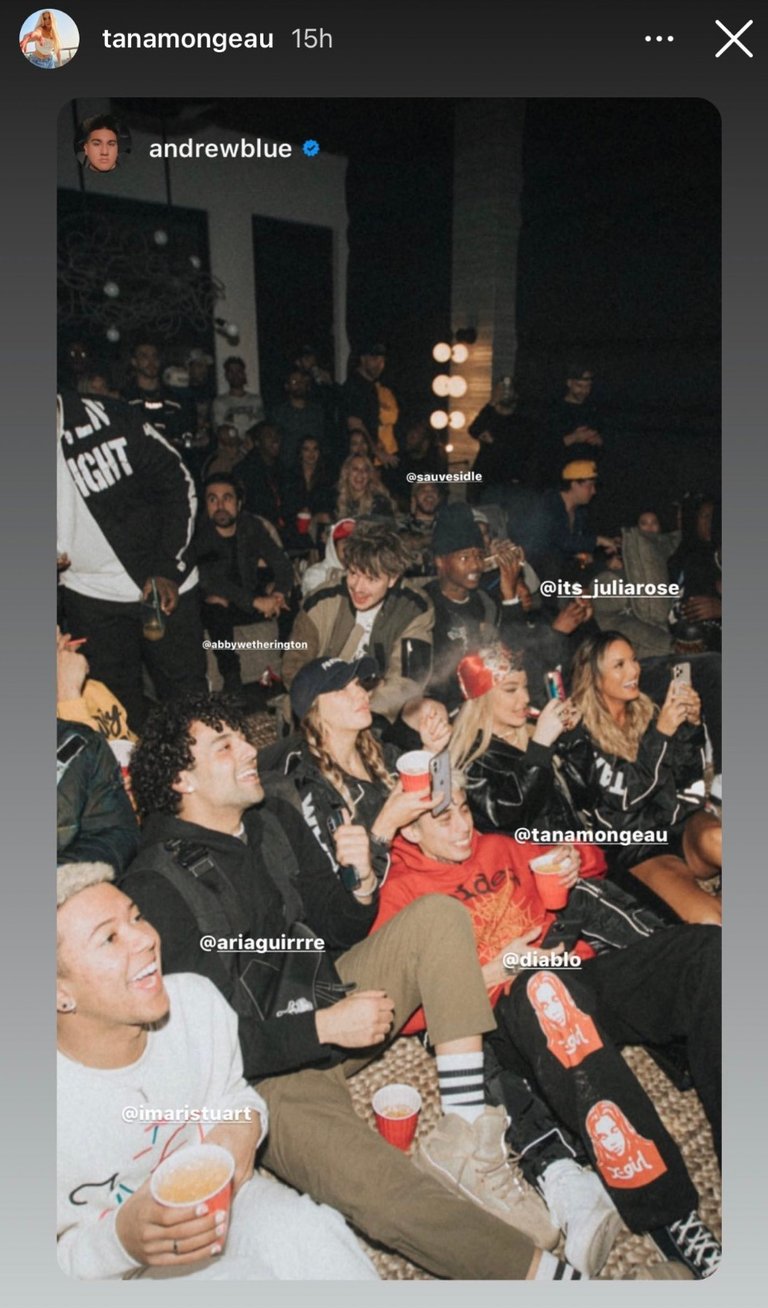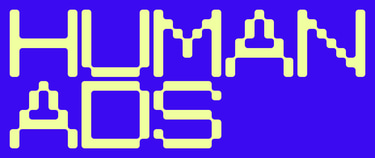CAN’T STOP, WON’T STOP – THE LA INFLUENCERS LAVISH LIFESTYLE DOESN’T LOOK SO GLAMOROUS DURING A GLOBAL PANDEMIC
Guest post by Luca Teres Loytved, Nahomi Deltombe & Delia Graetz
Although some influencers have been advocating for the lockdown guidelines, some of LA’s youngest social media stars have been ignoring the pandemic imposed regulations. The reckless behaviors were often justified by the “influencer lifestyle” which apparently begs for social gatherings and contact with other influencers for content creation purposes. However this begs the question, are influencers truly over the pandemic aesthetic?
INTRODUCTION
The politics of Influencers have reached a peak during the COVID-19 pandemic. Possibly feeling obliged to advocate and being pressured to give their take on the subject the world has witnessed multiple social media personalities publish statements that openly seek to support current guidelines. Sadly, these statements soon ended up seeming like a publicity stunt rather than the reality of their own behaviour.The question arises as to why these Influencers continue to disregard guidelines and the opinion of the government and larger public. Thomas Petrou, co-founder of the mentioned ‘Hype House’ has named this disobedience to be justified due to the fact that they are ‘entertainers’ and that their job is to provide content to their following. Can this be morally justified? Why should these Influencers be exempted of these rules while millions of others have had to adjust their living and work situation?[1]While the world is outraged, it is also intrigued. The phenomena of not being able to look away when something bad happens sadly translates to these matters. Bad publicity sometimes sadly still is publicity. As we shall see, influencers are not only involved in public reputation scandals due to unsafe conduct but they sometimes also suffer legal consequences because of the responsibility they undertake by signing brand deals or in more extreme cases, contracts with national governments.
INFLUENCERS FOR GOOD AND HOW RULE ABIDING INFLUENCERS ACTUALLY HELPED THE ENFORCEMENT OF LOCKDOWN GUIDELINES
Because of their wide following and the intense influence power of social media, influencers have incidentally found themselves at the forefront of the campaign for social distancing and enforcing the stay-at-home guidelines[2]. Some social media stars have taken it upon themselves to provide their audiences with content to “lift people’s spirit” (@thefashionpirate), in order to engage with their viewers while spreading awareness on the COVID situation. Sociologists have underlined the role of influencers in encouraging the younger demographic to comply with lockdown rules. Younger generations are low risk for the virus but social media personalities should continue to use their influence to highlight the importance of the measures. As the lockdown entails people being physically separated and connecting through social media platforms, influencers also provide much-needed entertainment for those stuck at home.Indeed, myself, a lambda social media consumer, found it fascinating to watch Italian mega-influencer Chiara Ferragni, cook traditional food for her family (all dressed up in Fendi clothes, because #ad). Unsurprisingly enough, the lockdown also provided the influencers with new opportunities for partnerships (with cooking/cleaning items) or new content like the soaring popularity of home workouts videos can attest.The influencers who benefitted the most from the lockdown were those who adapted their content strategies to their followers and aimed at making the situation more bearable for their audience.[3]Fitness and wellness influencers were by far the most exposed social media personalities as their health and diet advice was potentially helping people improve the immune system, as well as keeping their audience moving during the harshest bits of the lockdown. In addition, misinformation has spread just as fast as the virus, and gained traction via a flurry of conspiracy theories. These hypotheses have led people to stop adhering to social distancing and adopting risky behaviour. While misinformation has sometimes been spread by celebrities and influencers (e.g. Kerry Hilson and the corona x 5G), social media influencers were mostly helpful in debunking fake news by sharing useful and correct information. Most influencers agree that they have a responsibility to support health campaigns, for their global network.Coming back to the aforementioned Hype House fiasco, the golden youth of TikTok was originally very vocal about supporting the lockdown rules of LA. Charli D’Amelio adamantly advocated via a tweet that read “stay at home, its not that hard !!!” back in February.However, as the saying goes: “practice what you preach”, and the social media sensation was quickly seen partying with other major influencers. She also multiplied collaborations with her best friends, which entailed the close gathering of households on several occasions. Lately, the 16 year old flew to the Bahamas along with her sister and a few close friends, sparking controversy over her responsibility towards her community.
CORONA AND INFLUENCER SCANDALS – AN EVER GROWING SERIES
Serial controversy seeker Jake Paul was one of the first to hold a large gathering at his mansion at his Calabasas home. This was followed by a birthday party by TikToker Larray which attracted major internet personalities such as James Charles, Tana Mongeau, Charli D’Amelio and Nikita Dragun.[4] The 67 guests at the named gathering were not wearing masks or abiding by social distancing measures in any way. After videos submerged, the Influencers were quick to apologize yet continue to show off their rather lavish lifestyle and privileges.[5] Popular TikTok stars such as the members of the ‘Hype House’ in Los Angeles, California, have set a dangerous precedent to the impressionable youth by not following their own advice. A member of said creator household, Bryce Hall, had invited over 100 guests to his mansion. The party escalated so immensely that the mayor of the city had to shut down their electricity.[6] In the United States, especially in California, the numbers of infected as well as deaths connected to the virus have been rising extensively with Los Angeles being a major hotspot.[7]Despite being major role models to a young audience, named Influencers have not only decided to put their own lives and those of the people they will be in contact with in jeopardy but have also decided to share these occurrences publicly. Advocating for a safer lifestyle were Ariana Grande, Chris Klemens and Tyler Oakley. Grande’s statement was released in which she publicly addressed the necessity of having to go out to bars so badly or whether the Instagram post was really worth the risk. Chris Klemens and Tyler Oakley were around those Influencers who continuously called out actors, with Klemens aristocratically socially distancing from everyone around him.We end up at a certain responsibility conundrum where it is difficult to define the moment where Influencers have to decide between their reality and the image they portray or the role model they should be. In the end, these are all private persons.THE FAMKE LOUISE CASE – WHEN CONTRACT LAW MEDDLES INObviously, the shift in influencers mindsets from raising awareness about the importance of social distancing measures to suddenly publicly refusing to comply with such measures, does not only occur across the pond, but is also present much closer to home. In autumn of 2020, a time at which the number of reported COVID-19 cases in the Netherlands spiked,[8]#ikdoenietmeermee (i no longer participate) started trending.[9] No longer agreeing with the measures put in place by the dutch government to prevent the further spread of the virus, a group of dutch celebrities turned to social media outlets with this hashtag to publicly express their dissatisfaction with the government restrictions.[10] Among the group of celebrities was 22 year old singer Famke Louise, who participated in the trend with the view to ‘regain control of the government’.[11]This was very ironic, as in that way, the singer did a full 180 to her previous position when she entered into a contract with the dutch government earlier in the year.When the pandemic reached the Netherlands, the Ministry of Health, Welfare and Sport (VWS) turned to national celebrities and influencers for a campaign to urge the population to comply with the government-imposed restrictions. The ministry spent a total of 66,574.20€ on the campaign, contracting with Ali B., Boef and Famke Louise, who were to be remunerated for posting two, four and three videos respectively.[12] It seems that acts, such as publicly opposing the government’s policy, clearly run counter to the contract which had been concluded and that Famke Louise would encounter consequences for the breach, such as not being remunerated or having to return the sum that was paid to her. Although the contract included provisions to regulate the celebrity’s behavior, which obligated all parties to refrain from any negative statements that would harm the campaign (Article 6.1)[13], the influencer did not face any legal consequences derived from the contract. As the time span of the campaign was set from 30 April 2020 until 30 May 2020, the contractual obligations in the provisions of the contract also ceased to apply (Article 4.1).[14] So, at the point in time when she rebelled against the COVID-policy, Famke Louise was not bound by any of those provisions. Only if she would have made her statement opposing the measures of the government during the period of the campaign, the ministry would have indeed been relieved from their obligation to pay her (Article 6.2).[15]Unsurprisingly, the trend immediately opened up online discussions and outrage among the public and was even addressed by health minister De Jonge, calling the influencers behaviour “irresponsible and dangerous”.[16] This being said, at least in the case of Famke Louise, the backlash with which the public responded to her participation in the #ikdoenietmeermee (i no longer participate), made her reconsider her actions. The 22-year old, along with other celebrities who were originally part of the campaign, took down their posts and videos shortly after.[17] Again relying on Instagram, Famke Louise made a post apologizing for her irresponsible behaviour, acknowledging the seriousness of making unsubstantiated claims.[18] Famke Louise tried to justify her behaviour, blaming it on the fact that it wasn’t her “best day”.[19] Still, even on bad days, influencers with such a wide reach, should reflect on their statements and consider the impact these have, shouldn’t they?
CONCLUDING REMARKS: SO WERE INFLUENCERS A POSITIVE OR NEGATIVE FORCE IN THE FIGHT AGAINST CORONA?
While the picture that is painted suggests that government-imposed pandemic rules are meant to be broken by influencers in order for them to keep their followers entertained and continue to make a living, this can in no way be backed up. Influencers, such as Chiara Ferragni have, since the very early stages of the pandemic urged their audience to comply with measures and stay at home.[20] Like her, multiple content creators have turned to interesting and creative content to safely keep their following entertained. Included are, for example the Sidemen, Emma Chamberlain, Bretman Rock …etc.The influencer community is made up of vastly different individuals and similarly to the trends observed in society, the social media stars are quite divided on the issue of COVID-19 and the best behavior to observe. Some adamantly stick to the rules and measures in place, urging others to follow, while others seem to disregard every possible restriction and (attempt to) justify it because of vaguely relevant reasons.The current situation leads us to question the role of influencers in the enforcement of corona guidelines: why do influencers seem untouched by legal orders? How can governments and health agencies use the potential of influencers to advertise for safer behaviors? But first, what will it take to actually deter influencers from engaging in glamorous gatherings ?
[1] https://www.insider.com/why-some-influencers-cant-stop-pandemic-partying-even-after-backlash-2020-12
[2] https://www.arabnews.com/node/1657906/lifestyle
[3] https://www.insider.com/why-some-influencers-cant-stop-pandemic-partying-even-after-backlash-2020-12
[4] https://www.insider.com/why-some-influencers-cant-stop-pandemic-partying-even-after-backlash-2020-12
[5] https://www.vulture.com/2020/07/james-charles-tana-mongeau-apologize-hype-house-party.html
[6] https://www.insider.com/why-some-influencers-cant-stop-pandemic-partying-even-after-backlash-2020-12
[8] https://www.statista.com/statistics/1101300/coronavirus-cases-in-netherlands/
[9] https://nltimes.nl/2020/09/22/mixed-reactions-dutch-celebrities-speaking-coronavirus-rules
[10] https://nos.nl/artikel/2349411-ikdoenietmeermee-wat-willen-de-rebellerende-bn-ers-precies.html
[11] https://www.theguardian.com/world/2020/sep/24/i-no-longer-participate-dutch-celebrities-rebel-over-covid-constraints
[12] Attachments to decision Wob request about the use of influencers for the campaign #alleensamen
[13] Attachments to decision Wob request about the use of influencers for the campaign #alleensamen
[14] Attachments to decision Wob request about the use of influencers for the campaign #alleensamen
[15] Attachments to decision Wob request about the use of influencers for the campaign #alleensamen
[16] https://nos.nl/artikel/2349406-minister-de-jonge-noemt-corona-actie-influencers-onverantwoord.html
[17] https://www.dutchnews.nl/news/2020/09/pop-stars-actors-say-they-will-no-longer-be-part-of-efforts-to-combat-coronavirus/
[18] https://www.theguardian.com/world/2020/sep/24/i-no-longer-participate-dutch-celebrities-rebel-over-covid-constraints
[19] https://www.bbc.com/news/world-europe-54279008
[20] https://www.glamour.com/story/chiara-ferragni-coronavirus-instagram


